Catching up with Shahi
Shahi was always in the background while Junaid Jamshed took centre stage.
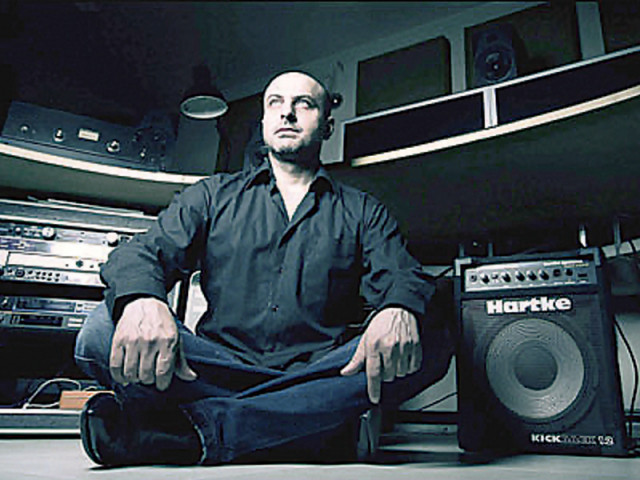
Catching up with Shahi
Growing up as an expatriate in the 1990s meant that the only arsenal we had against India’s ever encroaching entertainment industry was “Dil Dil Pakistan”. And as cricket fever was ripping through the country, there was just no melody that came close to this euphoric Vital Signs creation. It’s the first thought that comes to my mind when I meet Shahzad ‘Shahi’ Hasan. As I enthuse and gush over childhood memories and their inextricable link to the band, Shahi cannot help but beam at me with a quiet pride of ‘we must have done something right’.
The relatively shy member of the Vital Signs, Shahi was always in the background while Junaid Jamshed took centre stage. Now with the band an aching relic of the past, and a fellow band member, Rohail Hayat reviving the music industry with the epic Coke Studio, Shahi is working behind the scenes yet again, doing what he does best — producing music that touches the soul.
We meet inside the ageing walls of the Al Hamra open air theatre: A music icon with his adoring fan, as he speaks of his latest project that has the princes of pop Atif Aslam and Ali Zafar sing alongside folk maestros Saeein Zahoor and Arif Lohar. It’s a heady concoction and one that has set the decrepit insides of the Al Hamra ablaze with its soulful union. “The songs are the same, the artists are the same,” says Shahi candidly, “It’s just how you arrange the music.” A task that is effortless for the man who produced “Man ki Lagan” with the illustrious Nusrat Fateh Ali Khan. So it’s like a Coke Studio of sorts I comment. “Coke Studio is different,” says Shahi. “They don’t have the orchestral feel. Their focus is more on the harmonies. What we are doing here is how we used to rehearse for Vital Signs.”
Getting the country’s most powerful voices together on the same platform must have been a mammoth task, particularly when one keeps hearing how difficult Saieen Zahoor can be. And if the grapevine wasn’t enough to unnerve an onlooker, at the rehearsal an indignant Saieen stopped Atif midway while singing a Bulleh Shah kalaam, aghast that he was disturbing the integrity of the verses with his unique twist. The whole crew froze at that moment, but Atif respectfully stepped down, apologised and consented to do it Saieen’s way. How does a music producer deal with situations like these then, when an artist in unwilling to push creative boundaries in a particular direction?
“We can’t change the songs now can we?” says Shahi calmly. “We have to incorporate ourselves in his music. To prevent a head long collision, we have kept solos for everyone, so one set is not dependent upon the other.” And that is what is remarkable about Shahi, his understanding and acceptance of ‘this is the way things are and we will just have to deal with it’.
We speak of fashion and music as the two industries that can yield tremendous soft power for the country and Shahi, much to one’s shock, bitterly states, “Musicians are 90 per cent all hype and no talent. Fashion has moved forward because people within the industry own it, and have real talent and work to push it. There is this vicious false sense of competition, and till that abates issues like piracy cannot be dealt with effectively.” I stare agape, and try to convince him that he’s looking at things at a peripheral level. But he cannot be deterred. “Fashion has true stars that are educated and refined. Music has a lot of farce. Adding salt to the wounds, the Indian entertainment industry is eating up our pop music.” How so, I ask, considering our big guns are fueling Bollywood’s most sensational musical offerings. “Has there been any memorable patriotic song in the country in the last two decades?” he moans. “Where did all our singers go? Where is Abrarul Haq, Shehzad Roy, Najam Shiraz and Jawad Bashir? They have all gone into making issue based music which is time bound. Making songs on issues that spring up and then die down cannot take the industry far. Songs need to remain in people’s consciousness always.” He has a point. Junoon, Vital Signs and Strings retained their status because their ballads were timeless and not restricted to when a bomb exploded.
So what challenges him, now, at 43 years of age? “It’s a re-birth. I feel like an infant. There’s so much to do. When we speak of the Pakistani music industry, we just speak of pop and don’t consider the other forms of music being performed all over the country.” One cannot resist but ask if the boys will come together again as Vital Signs, and if that’s even a possibility with each of them on such divergent tangents. “We will come together for the cause of music,” Shahi says reassuringly. “Our chemistry will bring us together.”
Published in The Express Tribune, April 7th, 2011.

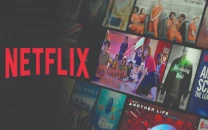
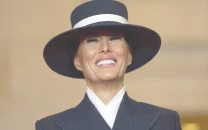
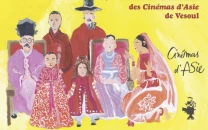
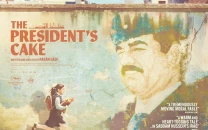
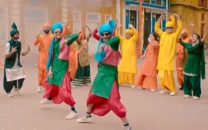
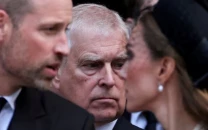












COMMENTS
Comments are moderated and generally will be posted if they are on-topic and not abusive.
For more information, please see our Comments FAQ